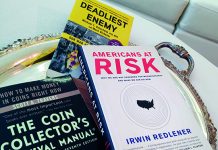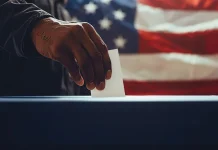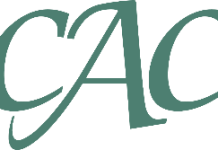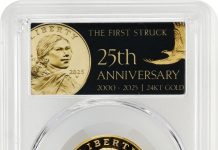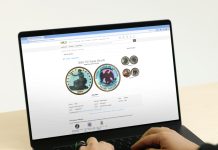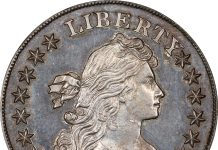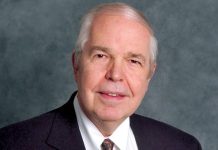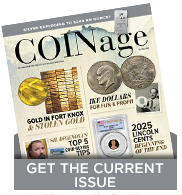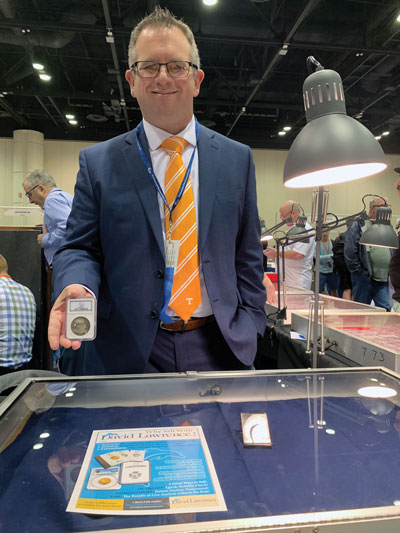
The pandemic’s impact on coin collecting has been a reshaping of the hobby and the news isn’t all dire. Some might even go so far as to say the pandemic has delivered a much-needed reset for the hobby.
Coin collecting captured the hearts and minds of numismatic enthusiasts trying to stay safe from illness in their homes. Coin dealers across virtually every sector of the diverse numismatic marketplace were speaking of business slowing down. Were they optimistic?
Sure, some of them were. But the marketplace was largely lumbering along at a glacial pace, especially in the middle pricing sectors, which forms the economic backbone of the numismatic marketplace. The coin market really hadn’t been hot since the years immediately before the Great Recession of 2007-09.
Functioning During the Pandemic
Amid the tragic pandemic losses, the coin collecting hobby started to find its way. Some coin clubs adopted live streaming technology and began hosting coin club meetings via live, interactive meetups online. Some coin shows went virtual. Coin dealers emboldened their e-commerce strategies or, in some cases, took their numismatic wares to the internet for the first time. Coin collectors made great use of online discussion board forums and social media hangouts. The hobby of coin collecting went digital in a way unimaginable in 2019.
In the process, the coin market ascended to heights likely unfathomable in what was, for many, a sluggish 2019.
The pandemic might have turned the numismatic hobby on its head, but we are landing on our feet. We are also much wiser for the wear and are working our way to a brighter future in numismatics.
The American Numismatic Association
The American Numismatic Association Adds to its Ranks American Numismatic Association (ANA) education director Rod Gillis helped oversee the nation’s largest numismatic organization as it turned on a dime to carry forth with tending to the numismatic needs of its nearly 25,000 members, even during the darkest days of the pandemic. The organization’s landmark World’s Fair of Money® scheduled for Pittsburgh, Pennsylvania in August 2020 was canceled, and its National Money Show in Phoenix, Arizona, was nixed for March 2021.
Meanwhile, in-person classes for the ANA’s Summer Seminar, an annual educational course for numismatically inclined children and adults held near the organization’s headquarters in Colorado Springs, Colorado, were canceled and broadcast online.
“The staff of the ANA have worked hard to adapt their offerings to fit the needs of their membership during this unusual time,” says Gillis. “While the ANA will be holding the World’s Fair of Money this August, in the interim, we have provided an educational venue by creating and expanding eLearning opportunities. Recognized numismatic experts have lent their time and talent to create virtual educational opportunities for both members and those outside the association. The eLearning classes have been successful with attendance for some classes reaching over 250 in attendance.”
Increase in ANA Member Classes
Gillis notes he and his colleagues are noticing a dramatic increase in the number of ANA members who are taking the classes. “Members are using their time at home to improve their skills in grading, counterfeit detection and identifying errors and varieties. The time spent in improving these skills will benefit them greatly when they are attending shows once again.”
Meanwhile, he’s hearing from dealers that they’re ready to attend the World’s Fair of Money and National Money Show events again. “Buying and selling with fellow dealers on the bourse floor has been greatly missed,” he notes. “Dealers will use some of their time at the World’s Fair of Money to restock their inventory with fresh material for their best customers. That being said, dealers have had to adapt to survive, and more than ever now have a presence on the internet to supplement their attendance at shows and corresponding sales.
Bringing in Younger Faces
As shows large and small begin opening doors again, attendees may notice more feet and younger faces on the bourse floor. “The ANA realized that many youngsters have been staying home and getting bored. With parental encouragement, youngsters have looked to collecting to fill up their idol time,” remarks Gillis, who says the ANA has cultivated further opportunities for young numismatists to grow within the hobby. The efforts are paying off.
“We have seen a significant growth in the number of participants in our flagship Coins for A’s program,” he reports. “Students submit their report cards with three or more A’s in a marking period for world coins. Parents love this program as it promotes educational excellence and fun while learning.”
It’s safe to say that the ANA has found the silver lining amid the fallout of the pandemic. “The revenue side of the business has faced challenges, just like in most other businesses,” he acknowledges. “[But] the ANA has identified this time as an opportunity to make our membership more informed, smart collectors, through our educational mandate, preparing them for new opportunities now that the pandemic is hopefully coming to a close.”
Florida United Numismatists
The nation’s largest coin club, ANA, wasn’t the only coin club going viral during the pandemic. Regional and local coin organizations also took to the internet to keep club members connected, informed, and safe during COVID-19. Facing unique challenges and opportunities were coin clubs in Florida. The Sunshine State sees particularly dynamic numismatic activity thanks to a large number of retiree permanent residents, as well as seasonal snowbirds from around the United States and Canada who converge in the relatively warm climes of central and southern Florida.
Florida United Numismatists (FUN) usually holds two conventions each year, which include a large show in January and a leaner event in July. The annual FUN conventions in winter have been drawing as many as 10,000 visitors in recent years, with around 600 tables the norm for those shows.
With summer afoot and the pandemic seeming to quell, FUN President Bob Hurst and his colleagues on the FUN board felt in May 2021 it was safe enough to hold the summer show in its usual venue located near downtown Orlando. Protocols in place for the 2021 Summer FUN Show were informed by local, state, federal safety mandates, and recommendations. Also guiding FUN’s individual safety protocols were Hurst’s own experience in watching how other coin shows navigated the pandemic.
Money Shows Around the Country
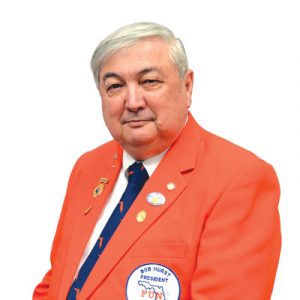
“The first show that I attended was the Cincinnati Coin Club show in Sharonville, Ohio, in the middle of July,” says Hurst of his initial forays onto the bourse floor following the cancelation of other shows a few months earlier in March 2020. “The bourse floor normally is in one section of the convention center. However, this show was expanded into two rooms. Each dealer had at least six feet of space between tables, masks, and temperature checks were required and that worked very well.”
He says other shows did things differently. “The following week I was in Saint Charles, Missouri, for the Missouri State Numismatic Society Convention. This show was set as normal, with no spacing. However, masks were required. The show was not as crowded as normal, [but] many of the dealers behind tables wore their masks below their chin.” He reports: “To my knowledge, no one from that show came down with the virus.”
Covid Protocols
Shows held by the Blue Ridge Numismatic Association and North Carolina Numismatic Association had their own variations of COVID-related protocols, including mask usage, temperature checks, social distancing, and even strict capacity limits. To Hurst’s knowledge, nobody came down with COVID at any of those shows.
“The South Carolina Numismatic Association [was] set up as normal, but dealers and the public were required to sign releases of liability.” After the show, Hurst found out a fellow attendee contracted COVID – the only show after which he had heard such news. “The individual did not know if it was caught at the show or before coming to the show,” Hurst opined.
Clubbing Virtually
While FUN serves as Florida’s biggest coin club, the state of 21 million sports numerous local clubs, including one that just happened to come along right before the pandemic, the Citrus County Coin Club.
“We were a new club that just formed less than three months prior to COVID, and I did not want to lose the membership,” recalls Citrus County Coin Club President Robert Bandino.
“My nine-to-five job had been having training and meetings online for the previous year. I called my IT guy, and we talked about doing an online meeting; we did a few test meetings and it worked. So we set out to have a meeting online.” Bandino says he and his technology guru worked with the club’s members one-on-one virtually to help them get online. “And our membership started to grow.”
He says the club leaders vested themselves in helping the club increase its virtual presence during the early months of the pandemic to ensure the fledgling club would stay afloat. “We worked from our homes via phone and online to keep it together. I had my computer online most of the time so if a member wanted to chat, we could.”
Getting Familiar with Tech
Bandino says he and others at the Citrus County Coin Club offered to help other clubs transition to online meetings during the heart of the pandemic, but they never had the opportunity to get very far with other clubs on this front. “I shared what we did with other clubs, but no one took the time to do the work to do a virtual meeting. I offered my help and [so did] my IT guy to set it all up, but we were not taken up on the offer.”
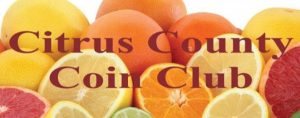
He underscores that the key to making sure the virtual element would work for the club’s members was investing time into helping each individual feel comfortable with the digital platform – something foreign to many.
“We made ourselves available to all our members even when it was not a meeting night,” says Bandino.“That is the key: keep the members interested.”
Virtual Meetings Keep Members Connected
Even as the Citrus County Coin Club begins in-person meetings again, Bandino says he and other club leaders plan to maintain virtual meetings to help their snowbird members remain actively involved with the club, even when they are hundreds of miles north of Florida.
“I would do it the same all over again,” he states. “Hopefully we never have a situation like this again, but I would take a stronger stance and help get the other clubs to go virtual.”
Ultimately, Bandino says digital meetings are absolutely worth what may amount to holding the hands of reluctant members early on and helping them maneuver a steep learning curve. “A club up north did virtual meetings and was very successful. It works.”
Making the Market
“One thing that nobody foresaw was how the virus would just effectively shut down the market as we knew it,” says prominent attorney and numismatic author David L. Ganz. “But there is always a place in the market to find a way to sell coins, and even in the pandemic we found a way to do that.”
Call it capitalistic evolution or simply finding new ways to adapt to unusual challenges, but Ganz believes collectors and dealers were working together as buyers and sellers to see that the coin industry wouldn’t wither away in the throes of COVID-19. “I think the one thing that is absolutely clear is that people will make the marketplace do what they want it to do. And they’ll find a way to do it properly.”
A Growing Hobby Market
Of course, propagating growth in the numismatic marketplace during the depths of the pandemic wasn’t a case of building something from nothing. During the early months of the pandemic, there was swelling demand for hobby goods such as vintage postage stamps, model railroads, baseball cards, comic books, and even antique cars. Among that colorful cavalcade of collectibles were coins, which saw an enhanced boost thanks to rising bullion prices.
“If you look at the market and the way they’re buying and selling, it shows that people were really collecting during the virus. The big lesson I learned is that there will always be a market for rare coins.”
A Dynamic Marketplace
But it goes deeper than there just being “a market.” Ganz says the pandemic saw further development of a more dynamic type of marketplace – one that flourishes on the concept that rare coins can be both collectibles and investments. “That means the collector market isn’t going to stay in a solid-state – it’s fluid.
It will bear the price necessary for people to make a profit and for collectors to come in at every level.”
He says he has seen similar growth in the stock market, which has seen impressive growth in investor participation and overall mass over the past few decades. “I recall a time when the Dow Jones Industrial Average made the news if it added 10 points in a day. Now, 40 or 50 years later, it has grown so much in volume that people barely even blink when it tacks on 300 points in a single trading session.”
Working Through – and Past – the Pandemic
David Lawrence Rare Coins President John Brush is no stranger to internet coin auctions. His company brought its unique model of regularly scheduled coin auctions, sans buyer’s fees, to the internet more than 15 years ago. It’s a platform that has proven successful for an increasingly digital numismatic hobby and practically readymade for something like the COVID-19 pandemic, which for a time saw the bulk of market activity occur through online channels.
Yet even as online bids poured in for the Virginia Beach, Virginia, coin firm, Brush and his team found abundant ways to further refine the way their already successful business operates. “It truly was an opportunity to focus on services to collectors and further technology,” he reflects.
“Initially, we worked on upgrading some aspects of our website. Then we worked on improving our photography and introduced nuTilt imaging to our website.”
The Collector Experience
He notes the pandemic made it more difficult to get coins in collectors’ hands, but the challenges compelled him and his team to enhance their technologies to improve what he calls the “collector experience” even when so many hobbyists were in lockdown. “The pandemic gave us the elusive element of ‘time’ to improve technology, service, and processes. It’s not how we wanted to obtain it, but we tried to make the best of the hand we were dealt.”
The element of time certainly helped hobbyists shift away from the usual responsibilities of work, volunteering, and other daily regimens and move toward hobbies they had once drifted from or perhaps had never previously taken up at all. “I think that the additional time on our hands allowed us to dive back into some past hobbies that we had left behind. That was certainly what happened to me,” he says. “It also gave us some time to think about what our next directions would be as far as collecting.
Once it was seen that the coin economy was going to be strong during the pandemic, there was certainly some adjustments made and cleansing of collections, and lots of coin equity was found and utilized for new purchases.”
Extra Time
Even those who still maintained gainful employment during the depths of the pandemic found more time in their schedules as remote work became the norm for countless millions whose work historically was based in offices. And while the David Lawrence Rare Coins team pivoted to working from home to help keep the business humming during the first months of the pandemic, Brush found the virtual commuting platform wasn’t necessarily convenient when operating a coin business.
“Working remotely is difficult,” he admits. “As we handle coins and base our purchasing decisions on seeing the quality of the pieces, it was sometimes like juggling cats to work out a schedule that was safe, legal, and efficient. Thankfully, we were also able to provide a work environment that was conducive for safe working for the most part.”
That doesn’t mean that all elements of the pre-COVID business model are essential as others. “One important thing that we’ve learned is that travel may not be as necessary as it once was,” notes the longtime dealer. “While we’ve certainly missed connecting with collectors and dealers in the past months, we’ve learned that we can maintain our business better and continue to source coins without having to rack up so many [Delta] SkyMiles. We miss coin shows for sure, but there will most likely be some reduction in the national shows. I’d be shocked if a few summer events aren’t canceled. And the importance of locations to national shows will become more prominent.”
Controlling Destiny
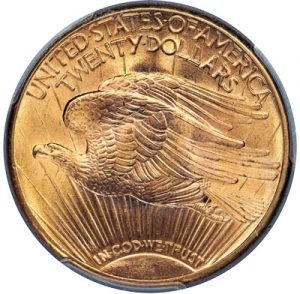
PHOTO COURTESY HERITAGE AUCTIONS, WWW.HA.COM
For powerhouse coin grader and financier John Albanese, there’s no substitute for holding coins in your hands. At least that’s what the coin dealer of 40-plus years says he’s learned over the course of the last 18 months.
And as co-founder of the Professional Coin Grading Service and founder of both Numismatic Guaranty Corporation and Certified Acceptance Corporation, Albanese is a third-party-grading guru who knows something about evaluating coins in-hand. “During the pandemic, a lot of people ordered coins online and would be dissatisfied with the pieces they received upon getting the coin in the mail. Nothing beats buying a coin in a coin shop or on the bourse floor, where you can hold the coin in your hand and really see how it looks.”
Long-Term Benefits
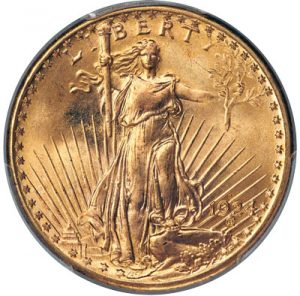
PHOTO COURTESY HERITAGE AUCTIONS, WWW.HA.COM
Even still, he says many dealers successfully managed to conduct business online during the pandemic – especially those who already had an online presence. “Those who didn’t have a website running likely jumped onto eBay to sell coins, and I’m sure eBay saw a boost in activity during the pandemic.”
The internet may have helped some dealers tide themselves through the pandemic, but Albanese says the dealers he’s known for decades have realized many long-term benefits to taking their businesses online. “I know dealers who have been in the business 10, 20, 30, or 40 years and bopped around from coin show to coin show to do business who tried jumping onto the internet to continue business. Many of them have found benefits in doing this, including finding it easier to transfer their businesses to friends and family members when they retire or move on from the hobby instead of just seeing their business fizzle out.”
He adds, “nothing beats having control over your own destiny.”
This story about big lessons in small coins previously appeared in COINage magazine. Click here to subscribe. Story by Josh McMorrow-Hernandez.


